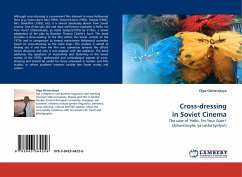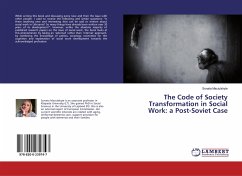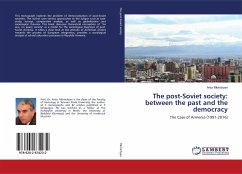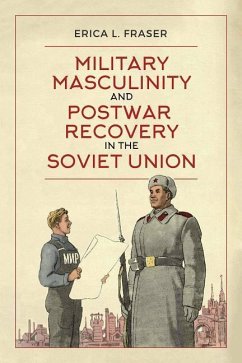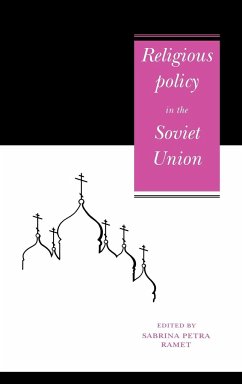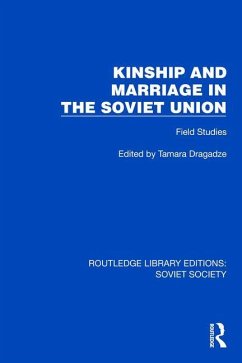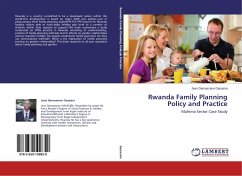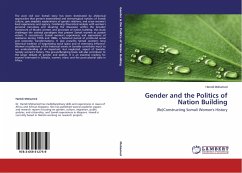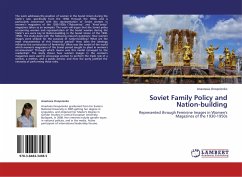
Soviet Family Policy and Nation-building
Represented through Feminine Images in Women's Magazines of the 1930-1950s
Versandkostenfrei!
Versandfertig in 6-10 Tagen
32,99 €
inkl. MwSt.

PAYBACK Punkte
16 °P sammeln!
The work addresses the position of women in the Soviet Union during the Stalin s rule, specifically from the 1930s through the 1950s, and is particularly concerned with the representation of Soviet women in women s magazines of the 1930-1950s ( Rabotnitsa and Krest ianka magazines taken as an example). The work will argue that the Soviet policy concerning women and representation of the Soviet woman during the Stalin s era were key to Nation-building in the Soviet Union of the 1930-1950s. The study deals with the following research questions: How women images were utilized for the purpose of n...
The work addresses the position of women in the Soviet Union during the Stalin s rule, specifically from the 1930s through the 1950s, and is particularly concerned with the representation of Soviet women in women s magazines of the 1930-1950s ( Rabotnitsa and Krest ianka magazines taken as an example). The work will argue that the Soviet policy concerning women and representation of the Soviet woman during the Stalin s era were key to Nation-building in the Soviet Union of the 1930-1950s. The study deals with the following research questions: How women images were utilized for the purpose of nation-building? What are the main characteristics of this historical period? How does the ideology influence the construction of femininity? What was the model of the world which women's magazines of the Soviet period sought to plant in women's consciousness? Through which means was this model conveyed to the readership? The study shows how women images in the women's magazines were used to encourage women to perform the triple role of a worker, a mother, and a public activist, and how the party justified the necessity of performing these roles.



